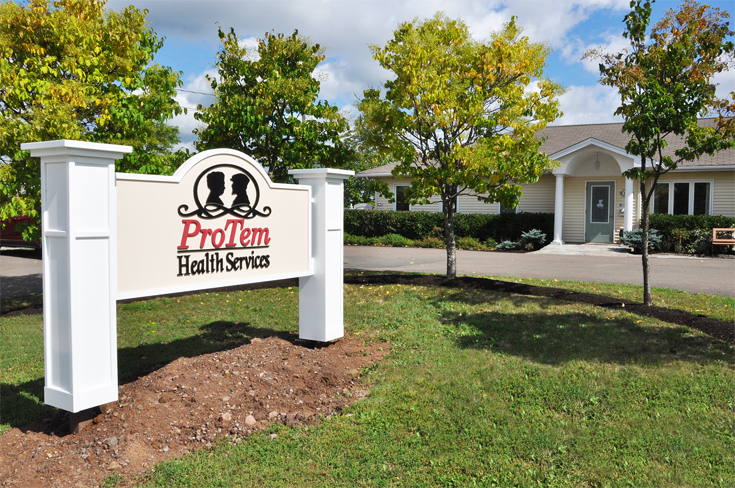About Dementia
Learn about the different types of memory diseases we specialize in at ProTem.
Vascular Dementia
When someone you love suffers a stroke, sometimes it’s caused by a blockage in blood vessels that feed the brain oxygen and nutrients. Depending on where the affected blood vessels are located, you will likely notice changes in your loved one’s ability to reason, think clearly, or remember.
The same is true if your loved one suffers a series of mini-strokes. You’re likely to see a step by step decline in various functions, depending on where the blocked or damaged vessels are located.
Vascular dementia is specifically associated with damaged blood vessels but often combines with other forms of dementia to create a condition called mixed dementia.
Symptoms of vascular dementia often overlap with other forms of dementia, especially Alzheimer’s.
Like other forms of dementia, vascular dementia symptoms include things like confusion, difficulty with attention span and concentration, memory and decision making, agitation, unsteady gait in walking, and difficulty with urinating.
Depression is also added to the mix because the stress and frustration of symptoms break down the neuronal (brain cell) connections in the brain. Those connections, called synapses, are aided by branches that develop off the neurons. Stress and depression cause those branches to break down and die.
The result is an impairment in communication from brain cell to brain cell, which impairs emotion, the ability to feel, to enjoy, and to remember emotional experiences.
The risk factors for this form of dementia are the same risk factors for other vascular and cardiac disease:
- Smoking
- Obesity
- High blood pressure
- High cholesterol
- Diabetes
- Age in the 80’s – 90’s
- Atherosclerosis or narrowing of vessels due to plaque build-up
- History of heart attack, stroke, or mini-strokes
- Atrial fibrillation
Multi-infarct Dementia
Vascular dementia is sometimes known as multi-infarct dementia. However, not all vascular dementia is multi-infarct dementia. Multi-infarct dementia is the one caused by a series of mini-strokes. If they happen on the left side of the brain they’re more likely to cause impairment in speech and possibly memory
Dementia is more likely when the infarcts occur on both sides of the brain, but can certainly happen as a result of infarcts on only one side.
Binswanger’s Disease is also called subcortical vascular dementia. This form of vascular dementia happens in the white matter of
the brain, as opposed to the gray matter. The white matter is where the neurons network, relaying messages from one part of the brain to another.
When the small blood vessels and nerve fibers in this area are damaged or interrupted by damage, that networking of messages can’t operate properly. The unfortunate result is interference with short-term memory, organization, mood, attention, decision-making, and appropriate behavior.
A distinct feature of this disease is a slowed response from brain to movement, or otherwise known as psychomotor slowness. An example of this might be the time that passes from the point a person thinks of a letter of the alphabet to the point they write it down. Or the decision to walk to the refrigerator happens in what appears to be slow motion.
Symptoms of many of the dementias are similar in general, but each has its own distinguishing characteristic(s).
If you see some of these symptoms in someone you love, or you notice symptoms after a stroke, see your doctor so you can begin treatment.
We encourage you to call us to begin the information gathering phase for the care of your loved one as the symptoms advance. We can help you gather information and point you to resources, to help you in your decisions going forward.
Our program for dementia in NB, PEI, and NS is a loving and therapeutic environment. We invite your questions and concerns.
Contact Us
Visit us at:
71 Gorge Road
Moncton, NB E1G 1E5
Mailing address:
Box 4-120, 331 Elmwood Drive
Moncton, NB E1A 1X6
Telephone: 506.874.9652
Our five small homes are located in the Mapleton area of Moncton.
Sign Up for Our Newsletter




